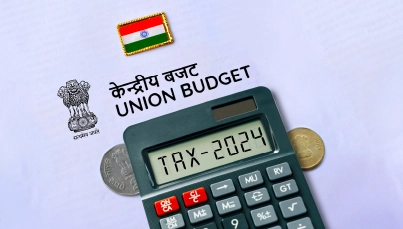Enjoying a Healthy and Sustainable Lifestyle After Retirement
Posted On Monday, Sep 28, 2015
 You are taking your morning walk by the ocean, enjoying the lovely breeze. In some time there is a yoga class to attend, and then a healthy breakfast. A five minute walk from the ocean, your lovely two bedroom apartment beckons you...
You are taking your morning walk by the ocean, enjoying the lovely breeze. In some time there is a yoga class to attend, and then a healthy breakfast. A five minute walk from the ocean, your lovely two bedroom apartment beckons you...
We might visualize something similar to this for the life post retirement, but many of us might not quite get there.
Why? It is because of the decisions that we tend to make, during our lifetime. Most of us believe in the quote “in the long run, we are all dead”, and refuse to think for the long term.
This often repeated quote is used many times to justify short term decisions, and ignore the long term implications of those decisions.
In the face of tempting short term decisions, there is this proven knowledge that planning, and executing plans for the long term helps. That is what makes the big difference between living well and living not-so-well.
Since childhood, variety of nudges and pushes influence our decisions. While some of the decisions or choices provide rewards for the short term, they could have a significant negative impact for the long term. These short term decisions can be in fields as diverse as relationships, diet, exercise, driving, investing, so on and so forth.
Here are some brief points on short term decisions and their impact:
| • | The education system in India influences children to focus on mugging and scoring marks rather than on learning the subject well. This helps in the short run, but is damaging in the long run. The focus should be on the long term skill development. | |
| • | In the Indian context again, many children often see their parents break traffic rules in order to reach the destination quickly. And that is what they do in the long run. Break rules. It helps in reaching destinations quickly in the short term, but is an extremely dangerous habit for the long run. | |
| • | The food lover is tempted to binge on junk food, which is very satisfying in the short run, without considering the adverse long term implications of such binging. |
In the field of investments...
| • | Short term decisions are impulsive actions. They may result in poor quality or risky investment. | ||||||||||||||||||||||||||||||||||||||||||||||||||||||||||||||||||||||||||||||||||||||||||||||||||||||||||||||||||||||||||||||
| • | Short term decisions may nudge the investor to buy an expensive product, while other equally good, cheaper options are available. Costs matter, as they tend to eat into the returns. For eg, in the case of mutual funds, while the conventional way of looking at costs is to look at it as a percentage of Assets under Management (AUM), the better way is to look at it as a percentage of returns under different scenarios. | ||||||||||||||||||||||||||||||||||||||||||||||||||||||||||||||||||||||||||||||||||||||||||||||||||||||||||||||||||||||||||||||
| • | The example below will provide better clarity on the point mentioned above. This is also illustrated in one of our earlier articles on the impact of expense ratio on returns. | ||||||||||||||||||||||||||||||||||||||||||||||||||||||||||||||||||||||||||||||||||||||||||||||||||||||||||||||||||||||||||||||
| Cost of the fund really matters | |||||||||||||||||||||||||||||||||||||||||||||||||||||||||||||||||||||||||||||||||||||||||||||||||||||||||||||||||||||||||||||||
Disclaimer: The table used above is for illustrative purpose only As the table above shows, when seen in the light of returns an expense ratio quoted as 3% of the AUM could actually be as huge as 37.5% in terms of returns (see column B) ! On the other hand, if the expense ratio is low as shown in column D, then expense as a percentage of returns even in a bad year can be just 15.6% | |||||||||||||||||||||||||||||||||||||||||||||||||||||||||||||||||||||||||||||||||||||||||||||||||||||||||||||||||||||||||||||||
| • | Short term decisions may result in higher amount of trades. Higher the number of trades, the more the brokerage that will be paid out. Again a drain on returns. | ||||||||||||||||||||||||||||||||||||||||||||||||||||||||||||||||||||||||||||||||||||||||||||||||||||||||||||||||||||||||||||||
| • | Short term decisions may result in short term capital gains on which higher taxes have to be paid. On the other hand, long term gains are taxed at a lower rate, or in the case of equities it is zero tax. The impact of frequently paying short term capital gains tax can be significant on long term wealth creation. | ||||||||||||||||||||||||||||||||||||||||||||||||||||||||||||||||||||||||||||||||||||||||||||||||||||||||||||||||||||||||||||||
| |||||||||||||||||||||||||||||||||||||||||||||||||||||||||||||||||||||||||||||||||||||||||||||||||||||||||||||||||||||||||||||||
| * Calculation of Indexation | |||||||||||||||||||||||||||||||||||||||||||||||||||||||||||||||||||||||||||||||||||||||||||||||||||||||||||||||||||||||||||||||
| |||||||||||||||||||||||||||||||||||||||||||||||||||||||||||||||||||||||||||||||||||||||||||||||||||||||||||||||||||||||||||||||
| In example A the investor books profits at the end of each year, pays short term capital gains taxes and subsequently his net returns are much lower than what the investor in example B retains. In example B the investor holds his investment for the long term and pays no tax in case of equity investment, or pays 20% tax (with indexation benefit) in case of non-equity investment. | |||||||||||||||||||||||||||||||||||||||||||||||||||||||||||||||||||||||||||||||||||||||||||||||||||||||||||||||||||||||||||||||
| The table above shows that holding investments for the longer term gives potential to earn better returns. Despite the annual gains being same in both examples, in example B the investor clocks a higher CAGR as his returns do not have any tax outgo. Even when the asset is non-equity, the investor earns better returns on holding it for the long term, than churning it as in example A. | |||||||||||||||||||||||||||||||||||||||||||||||||||||||||||||||||||||||||||||||||||||||||||||||||||||||||||||||||||||||||||||||
The frequent temptation to indulge in short term decisions, generally arise from not having a clear plan for the long term. Writing down clear long term plan helps in almost all areas of life be it in diet or in investments. Sticking to this long term plan with some tactical tweaking to take advantage of opportunities that arise, will help to reach the destination.
Long term planning, long term execution, long term products can all help in making that dream by the ocean come true, when you are alive.
Disclaimer, Statutory Details & Risk Factors:
The views expressed here in this article / video are for general information and reading purpose only and do not constitute any guidelines and recommendations on any course of action to be followed by the reader. Quantum AMC / Quantum Mutual Fund is not guaranteeing / offering / communicating any indicative yield on investments made in the scheme(s). The views are not meant to serve as a professional guide / investment advice / intended to be an offer or solicitation for the purchase or sale of any financial product or instrument or mutual fund units for the reader. The article has been prepared on the basis of publicly available information, internally developed data and other sources believed to be reliable. Whilst no action has been solicited based upon the information provided herein, due care has been taken to ensure that the facts are accurate and views given are fair and reasonable as on date. Readers of this article should rely on information/data arising out of their own investigations and advised to seek independent professional advice and arrive at an informed decision before making any investments. Please visit – www.quantumamc.com/disclaimer to read scheme specific risk factors.
Related Posts
-

Navigating the New Taxation Rules for Quantum Investors
Posted On Thursday, Jul 25, 2024
The Union Budget announced on 24 July, 2024 brought in controversial changes such as removal of indexation benefits and changes in tax rates.
Read More -

Ballots Cast, Budgets Await: Market Reactions in the Post-Election Economy
Posted On Thursday, Jul 18, 2024
As India emerges from a dynamic election cycle, the investing landscape finds itself at a crossroads. While the newly formed Coalition government settles in, pre-budget expectations are shaping market sentiment.
Read More -

The Governance Feature in this ESG Fund
Posted On Friday, Jul 12, 2024
In the realm of sustainable investing, the governance aspect of an ESG (Environment, Social, and Governance) fund holds paramount importance.
Read More
Get In Touch
Take small steps in your financial planning to achieve big dreams! Start your investment journey today!



